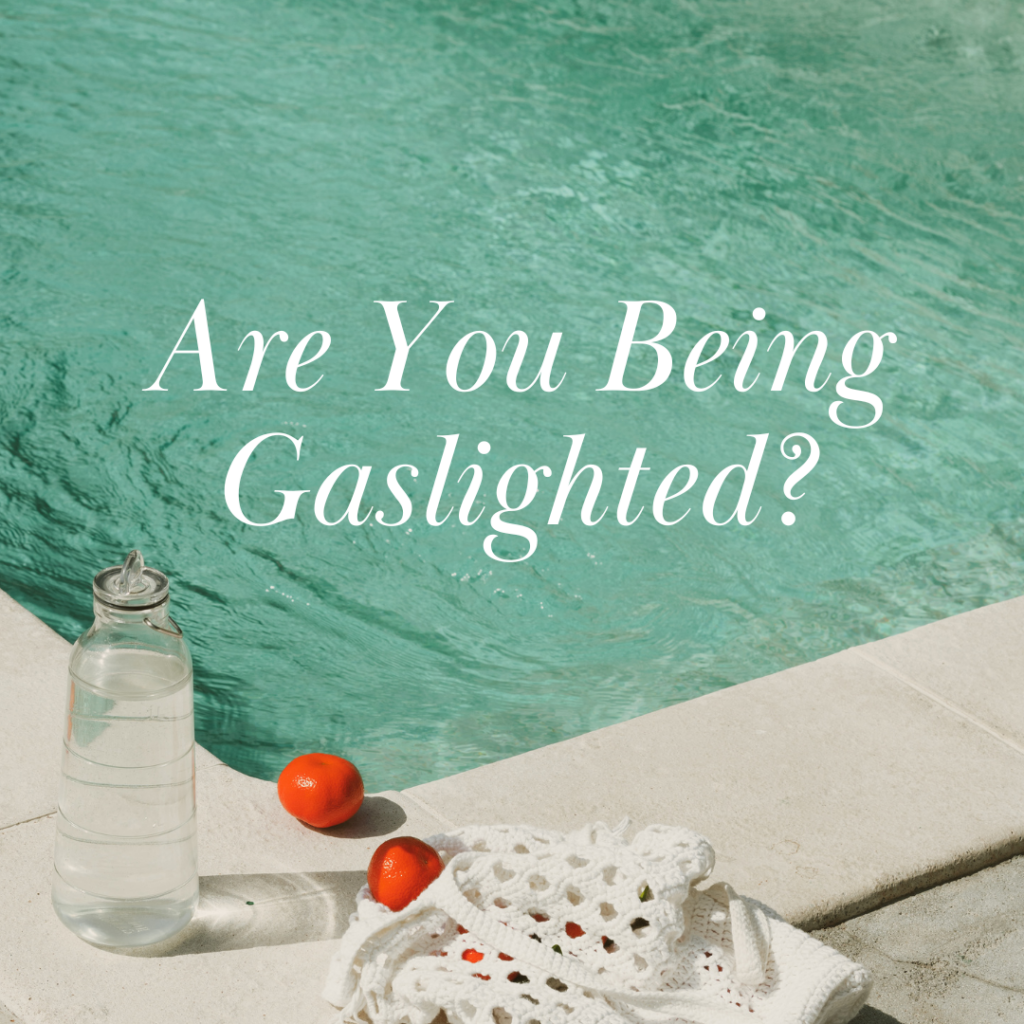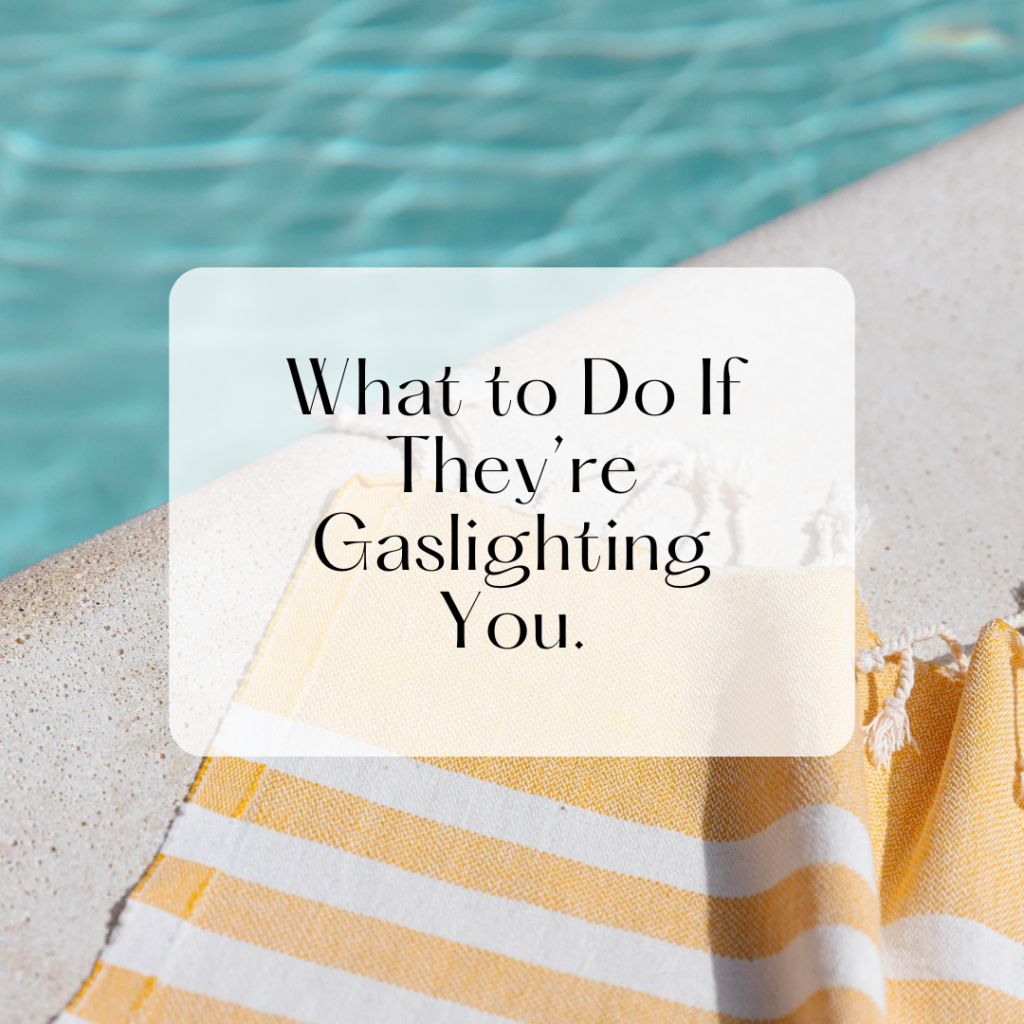Table of Contents Show
Are they gaslighting you? Have you ever argued with someone and walked away thinking, Wait… am I the crazy one? Have they ever sworn something never happened, even when you know it did? Do you feel like you’re always second-guessing yourself?
If any of this sounds familiar, you might be dealing with gaslighting in relationships, a sneaky form of manipulation that makes you doubt your own thoughts, feelings, and even your memory.
But here’s the thing: You’re not overreacting. You’re not crazy. And if something feels off, there’s a reason.
So, how do you know if someone is gaslighting you? Let’s talk about it. What is Gaslighting?
Gaslighting is when someone makes you question your reality by twisting the truth, denying things that happened, or making you feel like you’re being “too dramatic.” Over time, it makes you lose confidence in your own thoughts and feelings.
According to Psychology Today, gaslighting is a form of psychological manipulation where someone distorts the truth to make you doubt your memories, emotions, and perceptions. It’s often used to gain power and control over a person.
Gaslighting can happen in romantic relationships, friendships, families, and even at school or work. The goal? To control you by making you question yourself.

Gaslighting Quiz: Are You Being Gaslighted?
How to Know If Someone Is Gaslighting You
Are they gaslighting you? Ask yourself these questions:
- Have you ever apologized for something you know wasn’t your fault?
- Has someone ever made you doubt something you saw, heard, or felt?
- Do they say things like “You’re overreacting” or “You take things too personally”?
- Do you feel like you’re walking on eggshells around them?
- Have they ever told you, “That never happened,” when you remember it clearly?
- Do you find yourself thinking, “Maybe I really am the problem”?
If you said yes to any of these, you might be experiencing gaslighting. Are they gaslighting you? Keep reading.
Are They Gaslighting You? Signs to Watch For
Are they gaslighting you? Gaslighting can be subtle at first, but over time, it chips away at your confidence and makes you question reality. You bring up something that happened, and suddenly, it’s like it never existed.
Maybe you say, ‘You promised you’d call me back.’ But they shake their head, give a little laugh, and say, ‘No, I didn’t. You’re imagining things.’ At first, you’re sure they did. But they sound so convincing, so sure, that you start to wonder if maybe you really did make it up.
Or maybe you call out their behavior, saying, ‘I don’t like the way you treated me in front of our friends.’ Instead of apologizing or taking responsibility, they fire back, ‘You embarrassed yourself. Don’t blame me for your insecurities.’ Suddenly, the conversation flips, and now you’re the one in the wrong.
Then there’s the way they make you doubt your emotions. You express frustration or hurt, and they dismiss it with, ‘You’re overreacting.’ Or maybe they sigh and say, ‘Why are you so emotional all the time?’
Gaslighters are also experts at shifting blame. They make you feel responsible for their actions with comments like, ‘If you didn’t make me mad, I wouldn’t have said that.’ Or they insist, ‘You always start fights,’ making you wonder if you’re the one causing the conflict. Somehow, no matter what happens, it’s always your fault.
And then there’s the isolation. It often starts subtly. They begin making little comments about the people in your life, ‘Your friends don’t really like you,’ or ‘Your family just doesn’t understand you the way I do.’ They plant seeds of doubt, making you question your relationships with those who genuinely care about you. Before you know it, you feel like they’re the only person you can rely on.

What to Do If They’re Gaslighting You
Are they gaslighting you? If any of this sounds familiar, take a deep breath. You’re not imagining things, and you’re not alone. Are they gaslighting you? Recognizing gaslighting is a huge step—it means you’re starting to trust yourself again. And that? That’s powerful.
You don’t have to convince anyone else of your experience. If someone refuses to see the truth, that’s on them. What matters is that you see it. So what can you do next?
Listen to your gut. If something feels off, trust that feeling. You don’t need anyone’s permission to believe what you know deep down is true.
Keep a record. Write things down, take screenshots, or save voice memos when something happens. Having proof can help you stay grounded when they try to rewrite history.
Talk to someone who sees you. A friend, family member, teacher, or counselor can remind you of what’s real when someone else is trying to confuse you.
Set boundaries. You don’t have to argue with someone who refuses to listen. It’s okay to walk away from conversations that leave you drained, anxious, or doubting yourself.
Remind yourself: You are not the problem. No matter how many times they try to shift the blame onto you, their actions are their responsibility, not yours.
For more resources on identifying and recovering from gaslighting, check out this guide from the National Domestic Violence Hotline
Final Thoughts
Are they gaslighting you? Gaslighting can make you feel small, confused, and powerless, but you don’t have to stay trapped in that cycle. If someone is making you question your own reality, it’s not because you’re too sensitive or dramatic. It’s because they don’t want you to see the truth. The first step to breaking free is recognizing it for what it is.
And here’s what I need you to know: You deserve relationships built on honesty, respect, and trust. Not manipulation. Not self-doubt. Not confusion.
If you’ve started questioning things, that’s a good thing. That means you’re already breaking free from the control gaslighting creates. You are not alone in this.
Trust yourself. Your feelings are real. Your experiences are valid. You deserve to be heard.
And if this post made you think of someone who needs to hear this, share it with them. You never know who might need this reminder today.
And if you ever need support, you’re not alone. There are people who believe you, who see you, and who will remind you of your worth.
Recommended Reading
If you want to dive deeper into gaslighting and toxic relationships, these books are great resources:
- It Ends with Us by Colleen Hoover – A gripping novel about the complexities of love, emotional abuse, and breaking cycles.
- Chime by Franny Billingsley – A young adult fantasy novel with themes of gaslighting and self-doubt.
- The Girl on the Train by Paula Hawkins – A psychological thriller highlighting the impact of manipulation and self-doubt.
- Gaslighting: Recognize Manipulative and Emotionally Abusive People—and Break Free by Stephanie Moulton Sarkis, PhD – A practical guide to understanding and escaping gaslighting.
- Seeing Through the Shadows: A Teen’s Guide to Understanding Gaslighting – A workbook designed to help teens recognize and protect themselves from gaslighting.
Reading stories that reflect your experiences can help you see the truth more clearly and remind you that you’re not alone.



